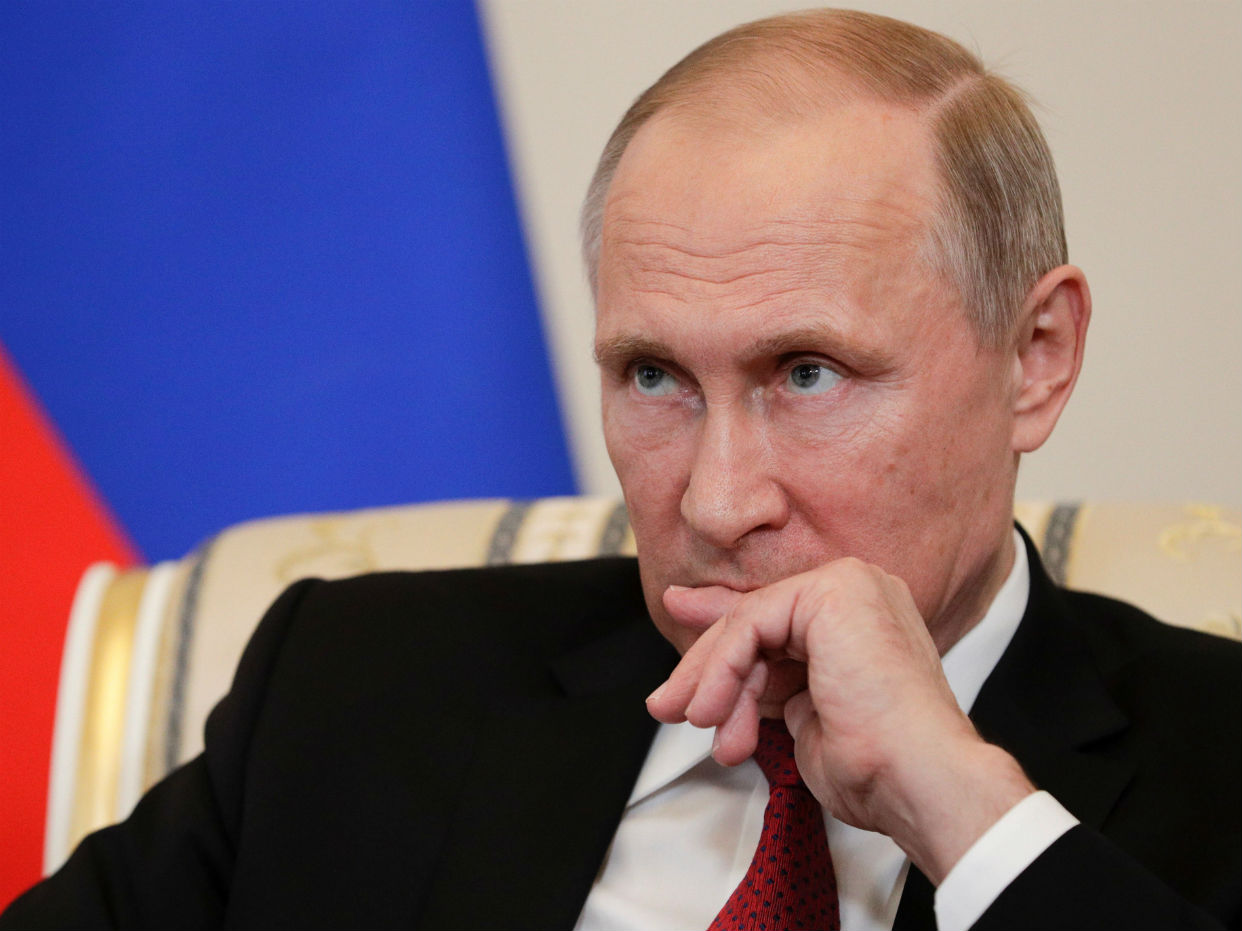Vladimir Putin ‘open to changing constitution’
Russian president mulling proposals to increase parliament’s power and limit the number of presidential terms

A free daily email with the biggest news stories of the day – and the best features from TheWeek.com
You are now subscribed
Your newsletter sign-up was successful
Vladimir Putin has sparked concern and confusion after saying he was open to changing Russia’s constitution to increase the power of parliament and limit the number of presidential terms.
Reuters says the issue of constitutional reform in Russia “is watched closely amid speculation about Putin’s own political ambitions”.
Having served as either president or prime minister since 1999, Putin is barred under the current constitution from running again as president when his current term ends in 2024.
The Week
Escape your echo chamber. Get the facts behind the news, plus analysis from multiple perspectives.

Sign up for The Week's Free Newsletters
From our morning news briefing to a weekly Good News Newsletter, get the best of The Week delivered directly to your inbox.
From our morning news briefing to a weekly Good News Newsletter, get the best of The Week delivered directly to your inbox.
“Critics have accused him of plotting to wield power beyond 2024 however, suggesting he might change the constitution to run again as president, shift power to parliament and assume an enhanced role as prime minister, or head a new union state comprised of Russia and neighbouring Belarus,” says the Moscow Times.
Fielding questions from media and the public during his annual press conference, Putin did little to assuage these concerns.
He said he would consider amending the Russian constitution to limit anyone’s ability to serve more than two terms, “preventing any potential successor from occupying power for the same period as Putin has done”, says The Guardian.
The paper reports he is also following proposals to increase parliamentary powers, “driving speculation that he could assume the role of prime minister after exiting the presidency, in what would be an echo of the 2008 election in which he traded places with then-premier, Dmitry Medvedev, after serving two terms as president”.
A free daily email with the biggest news stories of the day – and the best features from TheWeek.com
However, there was some confusion about what exactly he meant by the comments, says The Independent “with others suggesting he was indicating he would be leaving”.
“Although Putin was reelected only last year, speculation has focused on whether Putin plans to leave office or manage a transition designed to preserve his political legacy, for example by maneouvring a reliable successor into power,” says The Washington Post.
“There seemed little doubt that Putin, choosing his words carefully, intentionally left his true meaning open to interpretation” it says.
–––––––––––––––––––––––––––––––For a round-up of the most important stories from around the world - and a concise, refreshing and balanced take on the week’s news agenda - try The Week magazine. Start your trial subscription today –––––––––––––––––––––––––––––––
-
 Local elections 2026: where are they and who is expected to win?
Local elections 2026: where are they and who is expected to win?The Explainer Labour is braced for heavy losses and U-turn on postponing some council elections hasn’t helped the party’s prospects
-
 6 of the world’s most accessible destinations
6 of the world’s most accessible destinationsThe Week Recommends Experience all of Berlin, Singapore and Sydney
-
 How the FCC’s ‘equal time’ rule works
How the FCC’s ‘equal time’ rule worksIn the Spotlight The law is at the heart of the Colbert-CBS conflict
-
 Putin’s shadow war
Putin’s shadow warFeature The Kremlin is waging a campaign of sabotage and subversion against Ukraine’s allies in the West
-
 Alexei Navalny and Russia’s history of poisonings
Alexei Navalny and Russia’s history of poisoningsThe Explainer ‘Precise’ and ‘deniable’, the Kremlin’s use of poison to silence critics has become a ’geopolitical signature flourish’
-
 What happens now that the US-Russia nuclear treaty is expiring?
What happens now that the US-Russia nuclear treaty is expiring?TODAY’S BIG QUESTION Weapons experts worry that the end of the New START treaty marks the beginning of a 21st-century atomic arms race
-
 Epstein files topple law CEO, roil UK government
Epstein files topple law CEO, roil UK governmentSpeed Read Peter Mandelson, Britain’s former ambassador to the US, is caught up in the scandal
-
 Iran and US prepare to meet after skirmishes
Iran and US prepare to meet after skirmishesSpeed Read The incident comes amid heightened tensions in the Middle East
-
 Israel retrieves final hostage’s body from Gaza
Israel retrieves final hostage’s body from GazaSpeed Read The 24-year-old police officer was killed during the initial Hamas attack
-
 China’s Xi targets top general in growing purge
China’s Xi targets top general in growing purgeSpeed Read Zhang Youxia is being investigated over ‘grave violations’ of the law
-
 Ukraine, US and Russia: do rare trilateral talks mean peace is possible?
Ukraine, US and Russia: do rare trilateral talks mean peace is possible?Rush to meet signals potential agreement but scepticism of Russian motives remain